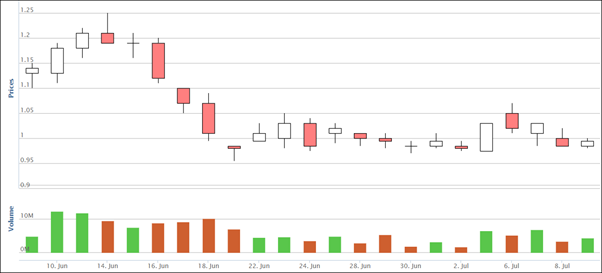How to protect your sole proprietorship ...
While your business may be thriving under your sole proprietorship, it is important to realise the consequences of having a business ownership tied to you individually, and how it may impact your family in the eventuality of your death.
THERE are many ways in which middle-income Malaysians make their money; the most common is through a sole proprietorship business, which forms a major part of the business owner’s overall wealth value.
There are many upsides to owning a sole proprietorship – it is fairly easy to set up, the startup costs are low, you have full control over the business as you’re the sole boss and, of course, the main draw is that you keep all the profits you make. However, a sole proprietorship also has its disadvantages. One of the major disadvantages is that there is no distinction between your private assets and business assets. As such, there is unlimited liability for debts, which has a potential to eat into your personal wealth should you not take measures to manage your business well. An aspect commonly overlooked is the need to protect or preserve the business value and continuity should something happen to the owner. Therefore, while setting up a business may be a positive step to take to help bolster one’s income, there’s also the stark reality every sole proprietor would eventually face – their business will also be terminated should any unforeseen circumstances happen to the owner. This can be especially daunting for the families of the sole proprietor, who may face immense difficulty in managing their finance and preventing the families’ wealth from being affected after the death. The case of Leong Let’s take the example of Leong, a sole proprietor of a successful accounting practice in Puchong with 15 non-professional staff. Leong’s business was doing so well that even with overhead costs of RM80,000 a month, he could easily draw RM45,000 per month from his practice. Due to his lucrative business, Leong’s wife stopped working to spend more quality time with their children. One day, Leong met a fatal road accident and passed away. And with his sudden death, came a financial crisis to his family. Clients who were once close acquaintances of Leong’s practice switched to competitors who offered the same services. Leong’s wife, not a qualified accountant, was unable to pick up her late husband’s business to continue offering these services. Eventually, the business was forced to wind down as the dwindling income was not able to pay off the company’s overheads. Since Leong was the sole breadwinner for the family, having no business income meant having no income for the family to survive off. His personal savings was only able to last the family 11 more months without any further influx of income. As grim as this recollection sounds, it actually happens a lot more often than one might guess. The question is – how do we avoid such situations for ourselves and our families? What could Leong have done to avoid this financial tragedy befalling his family? First, let’s see some of the options that are available to Leong’s wife in such a circumstance. > Liquidation of business by estate administrator. Unless authorised by the will or court order, the administrator or executor must wind up and liquidate the business as soon as possible. Forced liquidation usually results in severe loss of business value, sometimes ranging as much as 40% to 90%. > The estate administrator or executor continues the business until it can be sold as going concern. In this alternative, the sole proprietor’s will gives the power to the administrator or executor to continue the business and exempt him from personal liabilities for the appropriate actions taken during this period. However, the administrator or executor may still be liable for any losses caused by his or her negligence or imprudence. Inexperienced administrator The risk here is that, the administrator or executor may not be experienced or familiar enough to run the business operation. Secondly, after settling the outstanding estate liabilities, administration expense and taxes, the administrator or executor may not have sufficient working capital to continue the business. > The heirs inherit the business through a will. In the sole proprietor’s will, the business can be transferred to the heirs as a gift. However, the heirs may not have sufficient knowledge or ability to run the business profitably. If they are not successful in running the business, there’s the risk of dissipating their other estate inheritance in order to save the business. As such, the business gift may turn out to be a liability rather than an asset for the heirs. > Sale of the business through as agreement prior to the death of the sole proprietor. Before his death, the sole proprietor may offer the sale of his business to his employee or an interested outsider. Under this alternative, the potential buyer enters into a contractual agreement with the sole proprietor so that the sole proprietor binds his estate to sell and the buyer to buy the business at an agreed price. Now let’s take a look at some actions that sole proprietors can do while they are living to ensure that their surviving family members are not put into a tough position financially. > Get a proper business valuation assessment as part of your estate planning. As sole proprietorship is the trickiest to sell, it is important to have a licensed financial planner to help assess the business value. He or she would be able to highlight the probable shrinkage in its value under different circumstances, and prevent the sole proprietor from overvaluing their business and thus under preparing the cashflow needed upon death. Power to executor > Give the executor of your will the decision-making power to continue or sell the business. Without this instruction, the executor is bound by law to protect the assets in the estate, and thus may default to winding up the business as soon as possible, which could result in losses. If the heirs are interested to continue the business, owners of the sole proprietorship may want to instruct the executor to transfer the business to them. > Seek out a buy-sell agreement with friends or network in the field. For some professional practices like accountant, doctors, land surveyors, architects, consulting engineers and others, a good practice would be for the sole proprietor to reach out to friends or network in the same field to enter into a buy-sell agreement as an alternative. Such an agreement will ensure that the surviving professional will purchase over the practices from the deceased’s estate. An agreement like this would not only help one, but both sole proprietors to ensure the continuity of the business in the event of one of the owner’s demise. > Identify key employees who can succeed the business. Depending on the nature of your business, you may want to invest some effort into identifying a potential successor and prepare them to take over the business one day. Involve any prospective successor in the day-to-day operations to give him or her more experience. You could also consider entering into a buy-sell agreement with the potential successor to buy your business in the event of your death. > Protect your family with life insurance. This solution acts as a buffer to provide a safety net to your family. Protecting your family with life insurance while you’re still alive could help bolster losses incurred from a forced wind up of the business. Forced liquidation In some cases, the forced liquidation could result in liabilities in excess, of which the life insurance coverage will be able to compensate the business value loss. In the case that your business does not go through a force winding up, the life insurance claim proceeds will buy your family time to transition through settling your estate, learning the ropes of your business, and/or provide your family accessible working capital during the transition period of settling your estate. In the case of entering a buy-sell agreement with an interested buyer, he or she can consider purchasing life insurance on the life of the sole proprietor. This may sound crude and calculated but when the time comes, it can provide additional funds needed for the purchase of the business. While your business may be thriving under your sole proprietorship, it is important to realise the consequences of having a business ownership tied to you individually, and how it may impact your family in the eventuality of your death. If you are a sole proprietor, I invite you to evaluate your risks while things are going well with your business. The best way to do this is to employ the expertise of a licensed financial planner. The licensed financial planner would be able to help identify the pros and cons of each alternative to your business and incorporate your intended wishes into your comprehensive financial planning. Yap Ming Hui is a licensed financial planner. The views expressed here are the writer’s own. Any reliance you place on the information shared is therefore strictly at your own risk.The Star - StarBiz By YAP MING HUI
Related
How to Protect Assets in a Sole Proprietorship
Related posts:
Generating sustainable retirement income
Young adults in developed countries rent, we buy houses for good



































